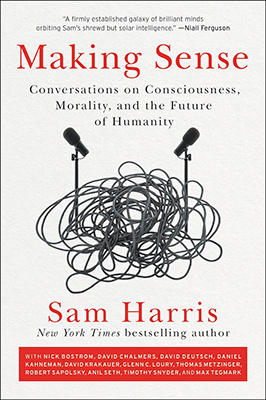Making Sense
“Making Sense” is a book by neuroscientist Sam Harris, which provides insights into how to navigate the complexities of the modern world and make better decisions. Here’s a summary:
In “Making Sense,” Harris draws on his background in neuroscience and philosophy to explore various aspects of human cognition, perception, and behavior. He examines the ways in which our minds often lead us astray, whether through cognitive biases, emotional reactions, or faulty reasoning.
One of the central themes of the book is the importance of critical thinking and skepticism in evaluating information and forming beliefs. Harris argues that in an era of misinformation and polarization, it is crucial to cultivate intellectual honesty and a willingness to question our own assumptions.
Harris also addresses the role of science and reason in understanding the world and solving its problems. He emphasizes the value of evidence-based thinking and the scientific method in distinguishing fact from fiction and making informed decisions.
Throughout the book, Harris discusses a wide range of topics, including morality, spirituality, politics, and the nature of consciousness. He encourages readers to engage with these subjects thoughtfully and critically, avoiding dogma and tribalism in favor of open-minded inquiry.
Ultimately, “Making Sense” serves as a guide to navigating the complexities of the modern world with clarity and integrity. Harris offers practical advice for developing a more rational and compassionate approach to life, grounded in reason, evidence, and ethical principles.

